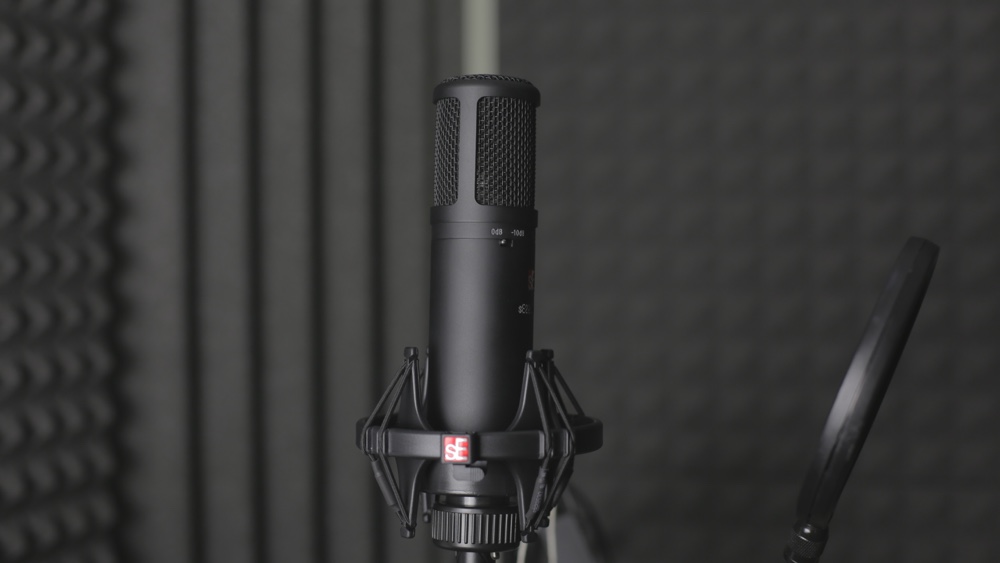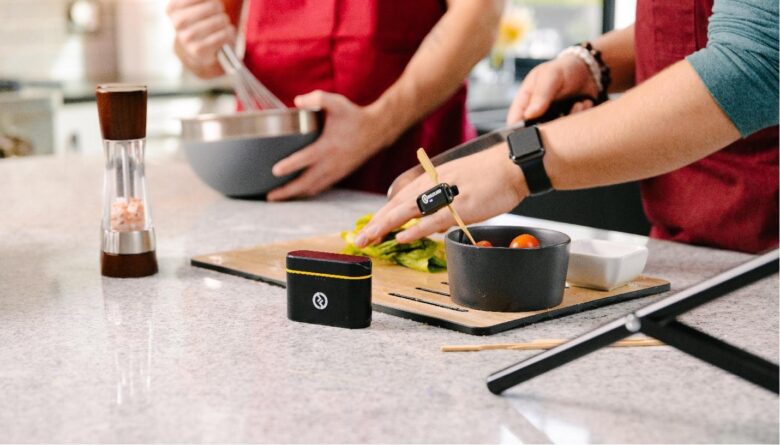Interviews on the go can be done in a variety of ways, but the most important factor for success is having the right microphone. Choosing the right microphone for interviews on the go is essential to ensure clear audio quality and reliable performance. Whether you are conducting interviews on the street, in a park, or any other location, having the right microphone will make a huge difference. Here are seven factors to consider when selecting the right microphone for your interviews. The first factor is sound quality. You want to make sure the microphone you choose is able to capture the audio clearly and without distortion. You also want to check if it has a noise-canceling feature, which can help reduce background noise.The second factor is portability. You want to make sure the microphone is light and compact enough to fit in your bag or pocket. You should also look for a microphone that has a long-lasting battery life so that you can do multiple interviews without the need to recharge.The third factor is the type of microphone. Different types of microphones have different features and functions, and you should choose one that best fits your needs. For example, if you are doing interviews on the go, you should consider a lavalier or a headset microphone to ensure clear audio.The fourth factor is compatibility. You should check if the microphone is compatible with your recording device, and if it will work with the software you are using.The fifth factor is price. Microphones come in a variety of prices, and you should choose one that fits within your budget.The sixth factor is durability. You want to make sure the microphone is rugged and can withstand the rigors of being used on the go.Finally, the seventh factor is ease of use. You should make sure the microphone is easy to set up and use, so that you can quickly get started with your interviews on the go.By considering these seven factors, you can make sure you choose the right microphone for interviews on the go and get the best audio quality possible.
1. Portability

Portability is an important factor to consider when choosing a microphone for interviews on the go. The microphone should be small and lightweight enough to fit easily in your pocket or bag, and should also have a clip or lanyard to make it easy to carry. Battery life should be long enough to last through multiple interviews, and the microphone should be able to connect to a mobile device or laptop wirelessly to ensure ease of use in any location. Look for a microphone that is rugged and durable so it can withstand the wear and tear of travel, and opt for a model that has some form of wind protection to reduce noise interference.
2. Power Source

The power source of a microphone is an important factor to consider when choosing a microphone for interviews on the go. The most common type of power source for microphones used in interviews is a battery pack. This is portable and convenient, as it eliminates the need for wires and plugs. However, it is important to check the battery life of the microphone and ensure that it is long enough for the interview session. Other power sources for microphones for interviews include USB powered microphones, which may be more convenient for those travelling with a laptop or tablet. Additionally, some microphones can be powered directly from a computer or an external audio interface. It is important to choose the power source that best suits the needs of the interviewer and the environment of the interview.
3. Connectivity
Connectivity is an important factor to consider when choosing a microphone for interviews on the go. Depending on the devices you are using, you will want to make sure the microphone you choose has the necessary ports and connections for compatibility. You may need to connect the microphone to a laptop, tablet, or even a smartphone. Some microphones require an adapter for compatibility with different devices, so make sure to select one that is compatible with your setup. Additionally, you will want to be sure that the microphone is able to provide a reliable connection. If you are recording in a remote location, you may need to invest in a wireless microphone that offers a strong and secure connection.
4. Recording Quality

When it comes to recording quality, one of the most important factors to consider when choosing a microphone for interviews on the go is the type of microphone you are using. Different microphones will provide different levels of sound quality. For example, a lavalier microphone will give you a more precise and focused sound, while a shotgun microphone will provide a wider sound range. You should also consider the environmental conditions of your recording space, as this can significantly impact the sound quality of your recordings. Lastly, you should pay attention to the frequency response of your microphone, as this can affect the overall clarity and balance of your recordings. By taking all of these factors into account, you can ensure that you get the best sound quality possible for your interviews on the go.
5. Durability

Durability is an important factor to consider when selecting a microphone for interviews on the go. The microphone must be able to withstand the rigors of travel, such as being dropped or exposed to extreme temperatures. Durability is especially important for outdoor interviews, as the microphone must be able to withstand the elements. Make sure to check the material of the microphone and its construction to ensure that it is able to withstand the wear and tear of use in the field. Additionally, look for a microphone that comes with a protective carrying case to further protect it from damage.
6. Price

When it comes to choosing a microphone for interviews on the go, price is an important factor to consider. Depending on the type of microphone and the quality you desire, the cost can range from a few dollars to several hundred. It is important to find the best balance between price and quality to ensure you are getting the most bang for your buck. It may be tempting to go for the cheapest option, but it is important to remember that the microphone quality affects the sound of the interview and should not be overlooked.
7. Ease of Use

When it comes to interviewing on the go, ease of use is a key factor to consider when choosing a microphone. It should be lightweight and easy to transport, as well as easy to set up and use. Look for a microphone that has a simple and straightforward design, as well as easy-to-follow instructions. It should also have a reliable connection to your recording device and a long battery life, so you don\u2019t have to worry about it running out of power while you\u2019re in the middle of an interview. Additionally, look for a microphone that comes with a carrying case or other protective accessories to ensure that it is well-protected during transport.

